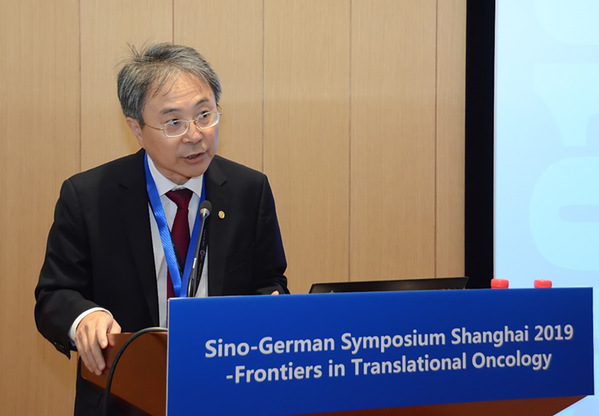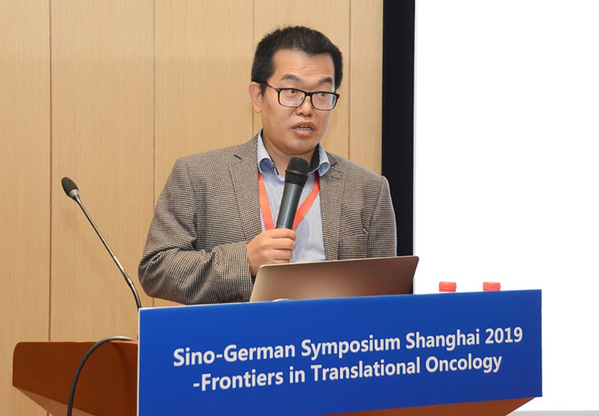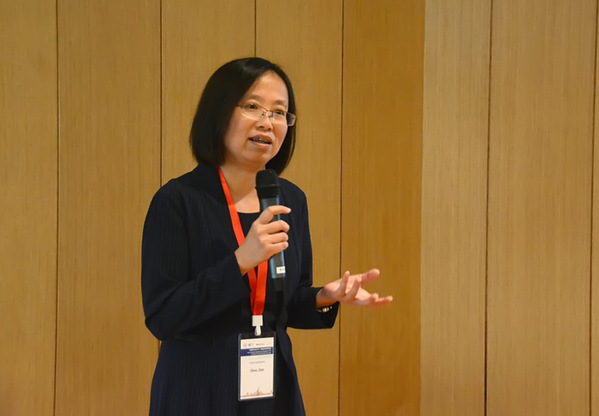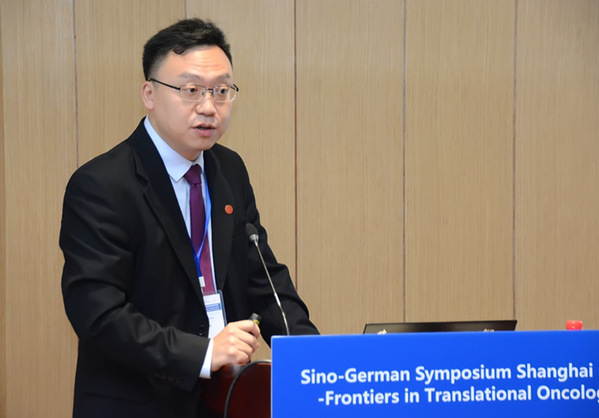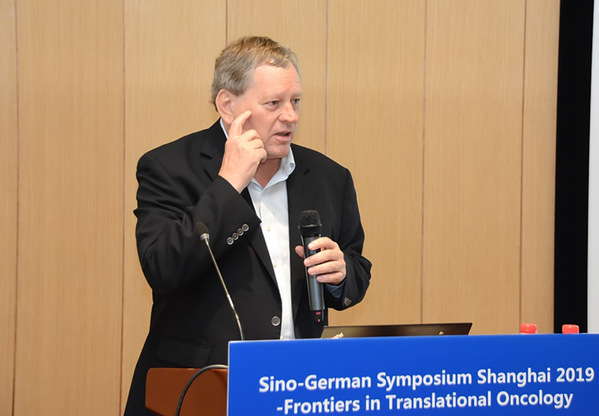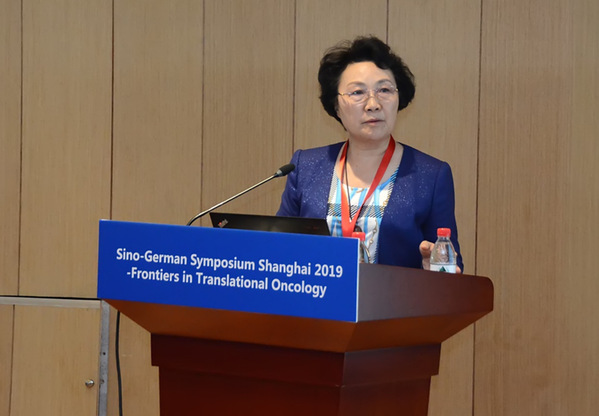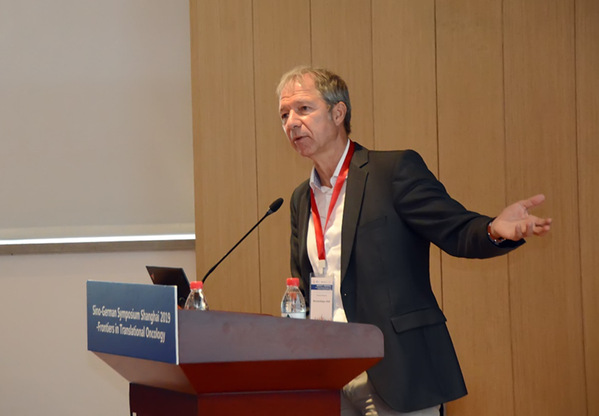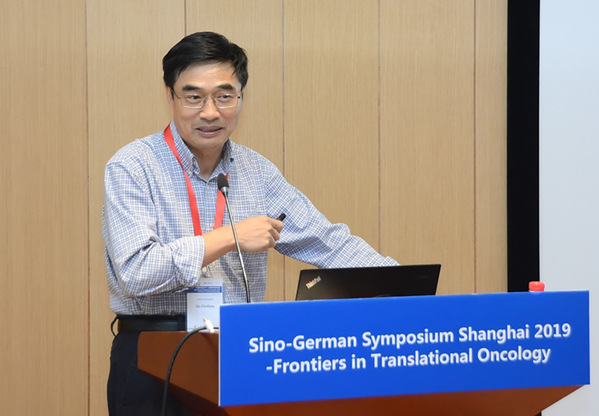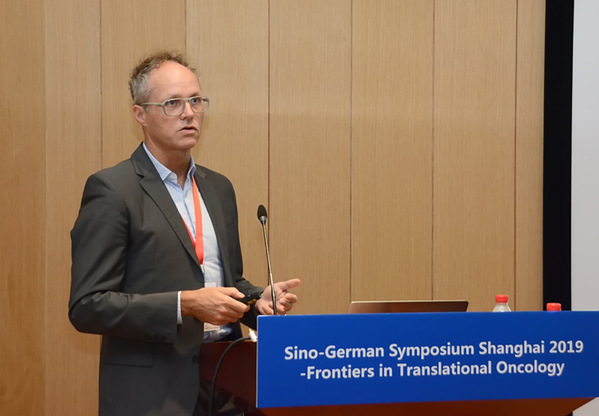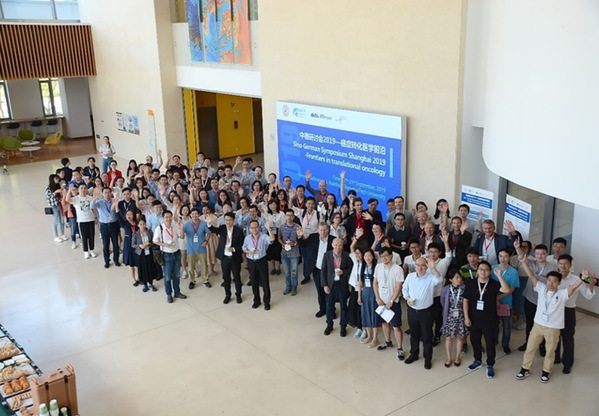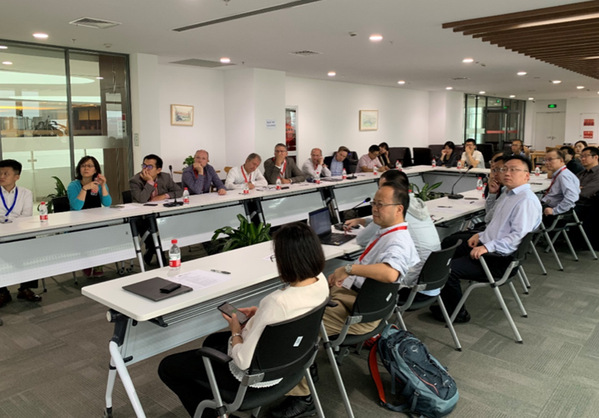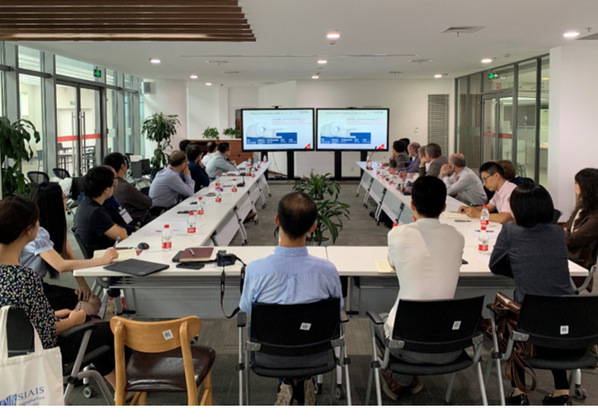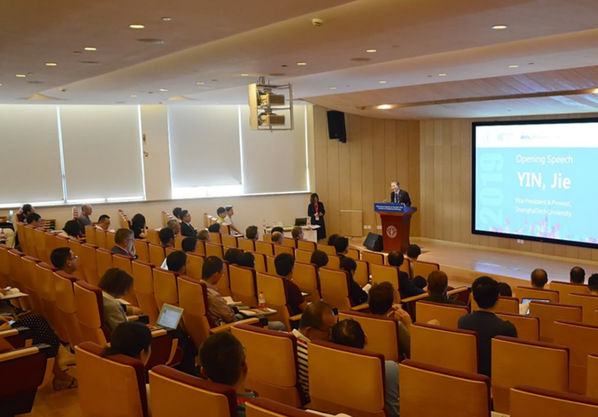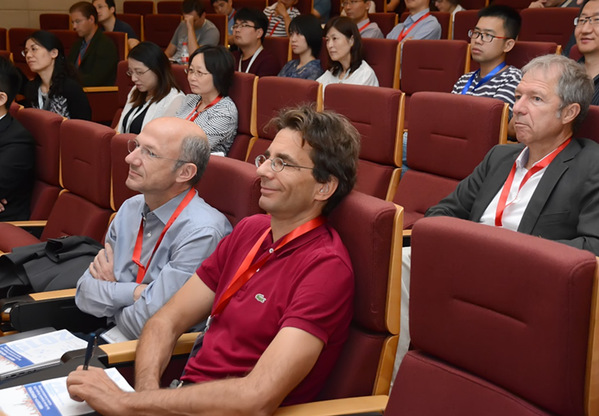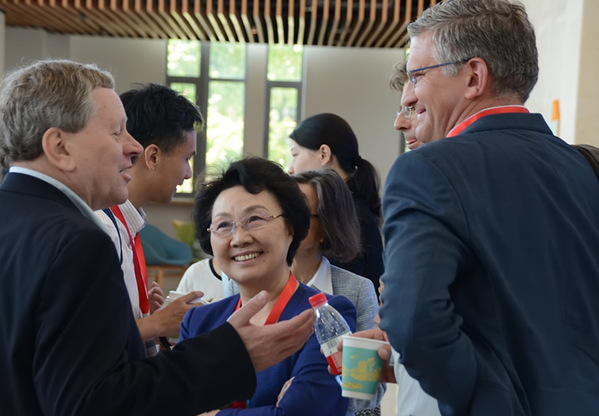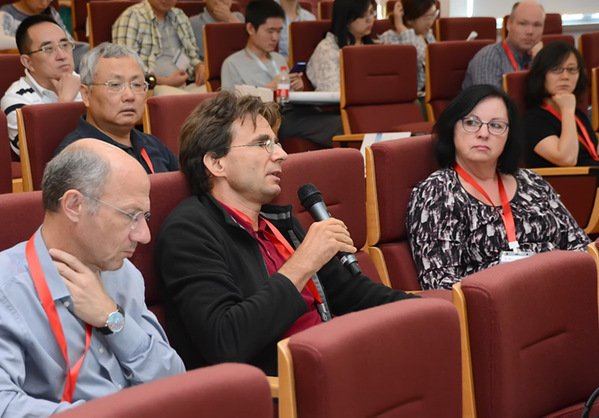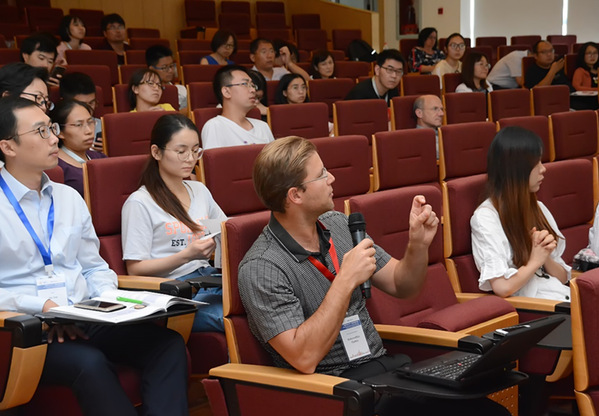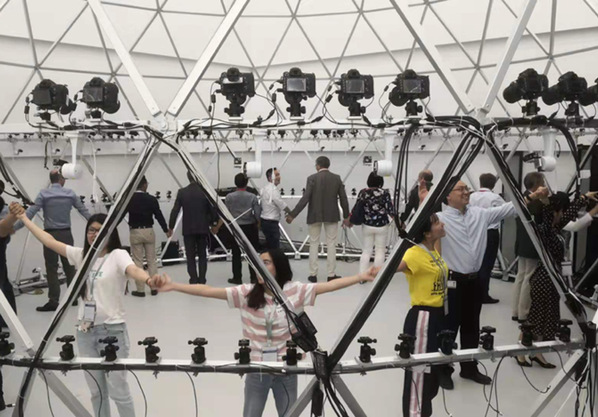The Sino-German Symposium Shanghai 2019 was held successfully from September 17th to 21st 2019 at ShanghaiTech University. The symposium was jointly organized by ShanghaiTech University and German Cancer Research Center (DKFZ), with the support from Das Chinesisch-Deutsche Zentrum für Wissenschaftsförderung (CDZ, the Sino-German Center for Research Promotion). Under the theme of ‘Frontiers in translational oncology’, nearly 40 distinguished scientists from world-renowned organizations shared their newest discoveries and discussed future collaborations.
During the symposium, ShanghaiTech University President Dr. Jiang Mianheng invited speaker representatives for in-depth discussions. Dr. Webster K. Cavenee (Director, Strategic Alliances-CNS of Ludwig Cancer Research with global responsibilities; Founding Director of the Ludwig Institute for Cancer Research, Montreal Branch and San Diego Branch; Distinguished Professor of Medicine at the University of California-San Diego; former President of the American Association for Cancer Research; elected member/fellow of the National Academy of Sciences, the National Academy of Medicine, the Leopoldina German Academy of Sciences, the Chinese Academy of Engineering; the winner of the Charles S. Mott Prize of the General Motors Cancer Research Foundation, the Albert Szent-Gyorgyi Award from the National Foundation for Cancer Research, the Margaret Foti Award for Leadership and Extraordinary Achievements in Cancer Research from the American Association for Cancer Research, the Feldman Founder’s Award from the National Brain Tumor Society, and the Friendship Award from the People’s Republic of China), Dr. Ralf F. W. Bartenschlager (Head of Division of Tumor Virology, German Cancer Research Center; Professor and Director of Department of Infectious Diseases, Department of Molecular Virology, Ruprecht-Karls-Universität Heidelberg; member of the Deutsche Akademie der Naturforscher Leopoldina 2013; member of the European Molecular Biology Organization (EMBO) 2017; the winner of the Lautenschläger Research Prize 2013, Robert Koch Award, jointly with Charles M. Rice 2015, Lasker-DeBakey Clinical Medical Research Award, jointly with Charles M. Rice and Michael J. Sofia 2016, European Virology Award 2016, and Hector Science Award 2017), Dr. Simone Fulda (Full Professor for Experimental Cancer Research, Director of the Institute for Experimental Tumor Research in Pediatrics, Vice President for Research and Academic Infrastructure, Goethe-University Frankfurt; member of the Leopoldina German Academy of Science; winner of the Ingrid zu Solms-Stiftung Special Prize/Research Prize of the Bernese Foundation 2016, German Cancer Prize 2014), Dr. Clemens Schmitt (Vice/Deputy Director of the Medical Department of Hematology, Oncology and Tumor Immunology, Director of the Molecular Cancer Research Center - MKFZ, Charité-Universitätsmedizin Berlin; Head of the Berlin School of Integrative Oncology; Group leader at the Max-Delbrück-Center for Molecular Medicine, Berlin-Buch), and Dr. Kun Ling (Associate Professor, Senior Associate Consultant II, Department of Biochemistry and Molecular Biology, Mayo Clinic Cancer Center) shared their insights on advances in life science and biomedical research and development, and discussed distinctive models for promoting medical research and research-orientated hospitals.
The opening event was chaired by Dr. Jian Zhao, Chinese coordinator of the symposium and research professor from Shanghai Institute for Advanced Immunochemical Studies. ShanghaiTech Vice President Dr. Yin Jie opened the symposium. Dr. Yin introduced the mission and vision of ShanghaiTech. Then, Dr. Liu Haikun, German coordinator of the symposium and professor from German Cancer Research Center, gave the opening speech. He reviewed the long history of Sino-German exchange and collaboration and looked forward to establishing new model of fruitful collaborations in the nearest future. Dr. Jiang Ge, executive director of SIAIS, delivered ap’ welcome speech, warmly welcoming all attendees and providing an overview of ShanghaiTech and SIAIS’s cutting-edge research and biomedical infrastructure.
The symposium featured five internationally recognized scientists as keynote speakers: Dr. Webster K. Cavenee, Dr. Ralf F. W. Bartenschlager, Dr. Clemens Schmitt, Dr. Hongyang Wang (Professor, National Center for Liver Cancer and International Cooperation Laboratory on Signal Transduction, Eastern Hepatobiliary Surgery Institute/Hospital; member of the Chinese Academy of Engineering), and Dr. Guoliang Xu (Professor, Institute of Biomedical Sciences, Fudan University Medical School; member of the Chinese Academy of Sciences).
By bringing over 220 attendees and nearly 40 international recognized speakers together, the symposium provided an international communication and exchange platform for researchers from academia and industrial community. Speakers were from German Cancer Research Center, Heidelberg University, Technical University of Munich, University of Freiburg, University of Würzburg, Charité medical center, University of Berlin, University of California-San Diego, Mayo Clinic, Chinese Academy of Sciences, National Center for Protein Science Shanghai, Fudan University, Shanghai Jiaotong University, ShanghaiTech University, and other renowned institutions. During the five-day symposium, the lectures focused on recent advances at the frontiers of translational oncology, including liver infection and cancer, brain cancer, tumor heterogeneity and signaling, and novel therapies (immunotherapy and beyond). The speakers and attendees had insightful discussions on both classic and cutting-edge topics, bringing in new ideas for future research and clinical practices.
In addition to the main sessions, the symposium also provided several post-conference activities, including a satellite meeting with top hospitals in Shanghai, a campus tour of four schools of ShanghaiTech, tours of national facilities surrounding ShanghaiTech campus (Shanghai Synchrotron Research Facility, National Center for Protein Science Shanghai, Soft X Ray Live Cell Imaging Facility, Ultra-Intense Laser Facility and Hard X Ray FEL Facility (under construction)), etc.
The symposium ended with a round table discussion in the ShanghaiTech library, chaired by Dr. Jiang Ge Jiang (SIAIS). Speakers, ShanghaiTech administrative officers (Office of Transfer; Office of Research), professors from ShanghaiTech University (iHuman Institute; SIAIS; School of Life Science and Technology), a Fudan University professor and the director of National Center for Protein Science Shanghai attended the meeting. Participants all acknowledged the success of the symposium and the vigorous development of ShanghaiTech and Zhangjiang Hi-Tech Park. In-depth discussions were conducted on future collaboration. All parties agreed to work together and focus on major clinical challenges in cancer translational medicine, and believed that by integrating different expertise from diverse research fields, a quickly-launched multiple-lateral collaboration program would for sure accelerate research and technology exchange and breakthrough.
The symposium was organized by ShanghaiTech University and German Cancer Research Center, and co-organized by Shanghai Institute for Advanced Immunochemical Studies (SIAIS), Cell Therapy Research and Application Branch, Chinese Society for Cell Biology (CSCB) and Exhibition Department of CSCB.
The organizing committee includes Dr. Liu Haikun (German Cancer Research Center), Dr. Zhao Jian (SIAIS), and Dr. Jiang Ge (SIAIS).
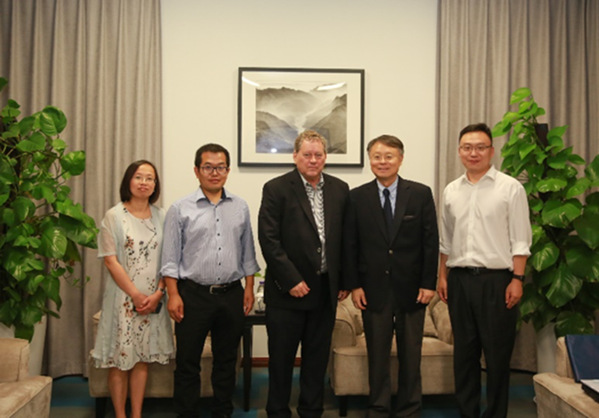
Professor Cavenee with Dr. Mianheng Jiang
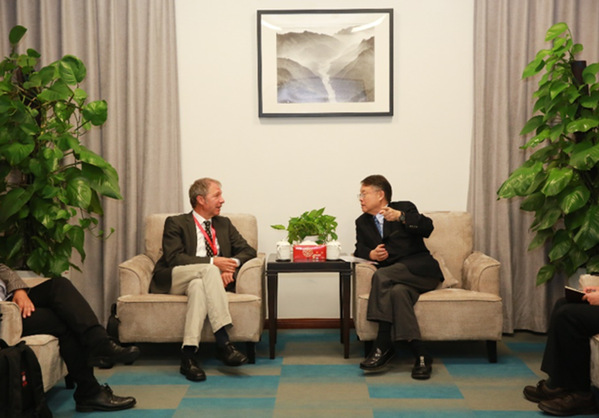
Professor Bartenschlager with Dr. Jiang Mianheng
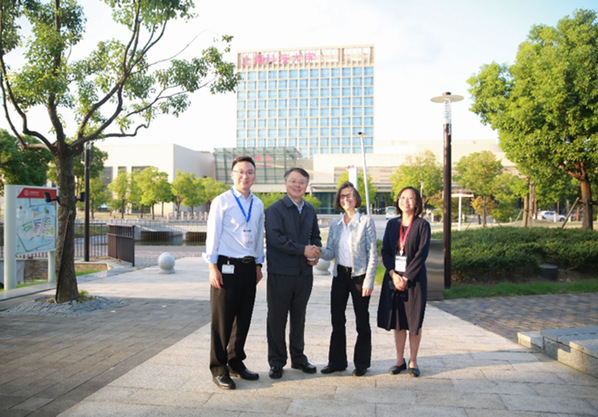
Professor Fulda with Dr. Jiang Mianheng
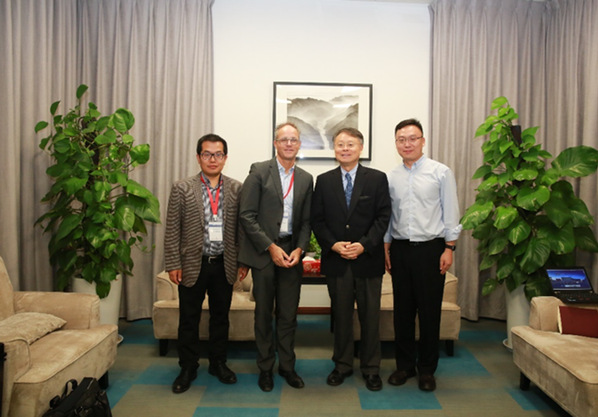
Professor Schmitt with Dr. Jiang Mianheng
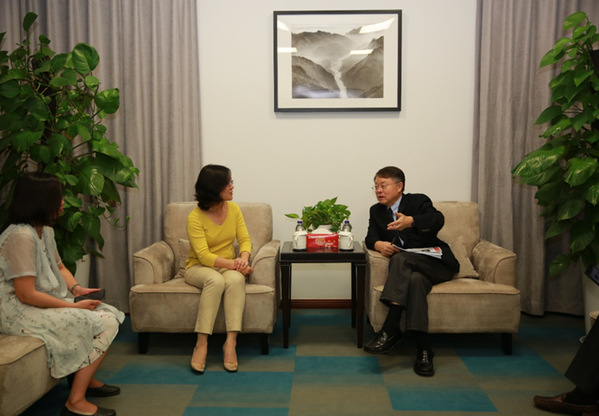
Associate Professor Kun Ling with Dr. Jiang Mianheng
